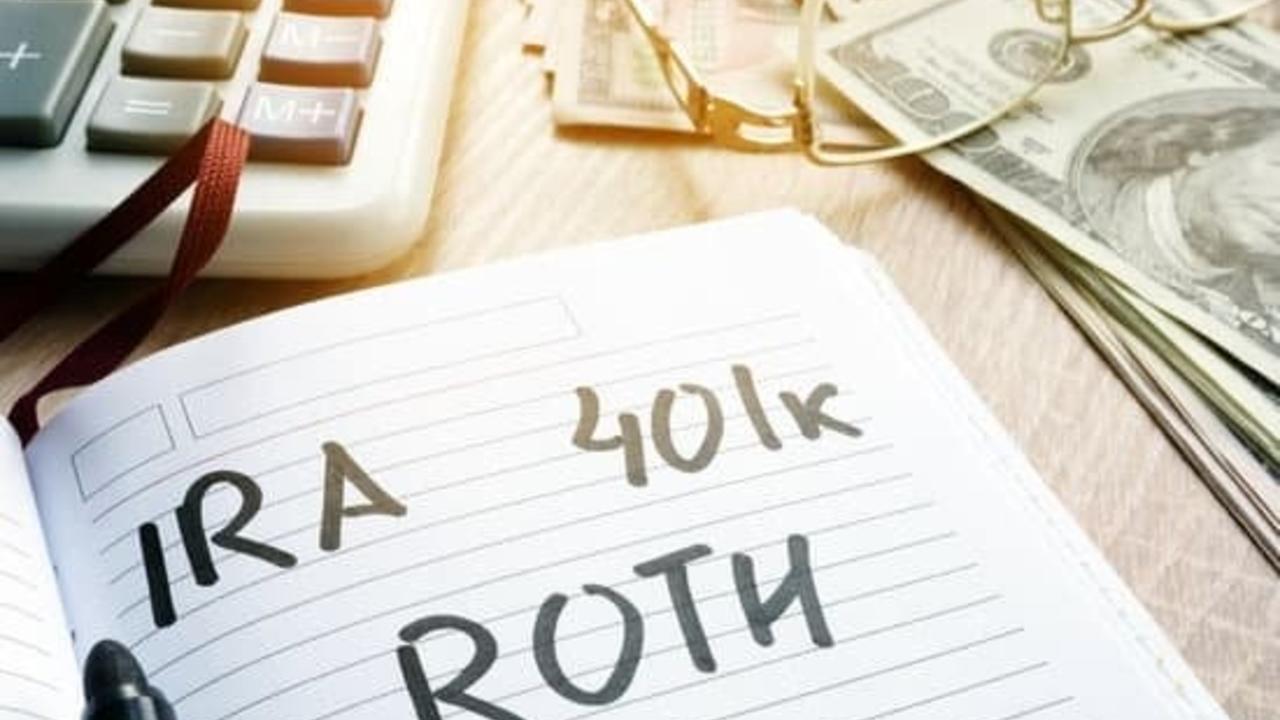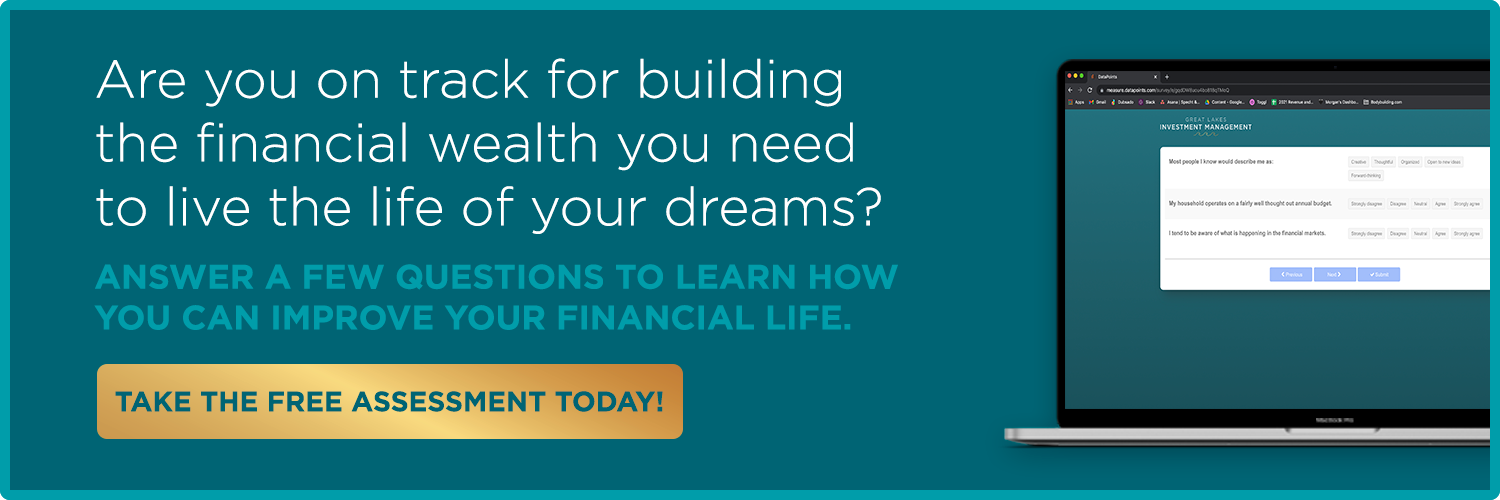Roth IRA vs 401(k) - What’s the Difference and Why Does it Matter?

Whether you’re starting a new job that offers retirement savings options, or you’re looking into managing your investments yourself, it’s easy to get overwhelmed. If you feel like investment lingo is too far beyond your wheelhouse to tackle, learning about the different types of retirement account is a good place to start. In this case, get a basic understanding of the differences between a Roth IRA vs 401(k). Let's work through what each of those types of accounts is, how to use them, and the pros and cons of each. Spoiler alert: Some people are eligible to take advantage of both account types.
What is a 401(k)?
A 401(k) is an employer-sponsored savings plan, which is often included in the benefits package of a full-time job. If your job offers a 401(k), you can sign up through your employer. The account is then managed through the financial institution of your employer’s choosing.
Once you’ve signed up for your 401(k) account, you’ll have the option to fund the account directly from your paycheck. Convenient, right? It gets better!
Once you choose how much money from each paycheck you want to contribute to your 401(k), your employer will more than likely match some or even all of that amount with their own funds (read: free money!). Contribution matching is a great way to make sure you’re maximizing the bang for your (and your boss’s) buck.
Additionally, all of the money that moves from your paycheck to your 401(k) comes out of your pay before taxes (unless you are investing in a ROTH 401(k), which is after-tax money). This way, you don’t pay any taxes on any contributions you make to your account.
Finally, if investment-savvy isn’t your strongest suit, you can let the financial institution managing your 401(k) decide where your money will be put to best use. You can, of course, choose for yourself, but only from investment options offered by that institution.
401(k) Limitations
That brings us to some of the more limiting aspects of 401(k)s. While they can be a great way to put your money to good use, you may not be able to actually use it for quite a while. 401(k)s are intended as retirement savings accounts, so if you withdraw money before you retire, you can face a stiff penalty fee (10% of the value of your withdrawal for pre-tax 401(k)s). Also, remember that for money that wasn't taxed when you put it in - if you take it out early, it is.
It’s worth noting as well that 401(k)s are only offered through employers. If your benefits package doesn’t include a 401(k) option, you’re unfortunately out of luck with this type of account.
But, fear not! That’s not to say that you’ve run out of options entirely. There are a wide variety of ways to invest, not all of which are dependent upon your employer. This brings us to another common type of investment account, the Roth IRA.
What is a Roth IRA?
A Roth IRA is an individual retirement plan that you can open directly with an investment firm or bank, rather than through an employer. Also, if you read the second part of the name as just one word, rather than as an acronym (it stands for individual retirement account), it sounds like the name of a secret agent. The name’s Ira. Roth IRA.
There are some other perks to a Roth IRA, in addition to its cool name. Although a Roth IRA is a type of retirement plan, there’s no penalty should you choose to withdraw early. Note, though, that this only applies to money you contributed to the account, not to any earnings you’ve made. Withdrawing earnings before you retire will come with a penalty, except for certain specific reasons such as buying your first home or childbirth costs.
Most importantly, the sky is the limit when it comes to investment options. You are not limited to what your employer has chosen to offer in the 401(k).
One downside to a Roth IRA is that, since you didn’t set up the account through your employer, they definitely won’t be matching any of your contributions. Understandable, but still a bummer.
Another is that all the contributions you make to this type of account are made on an after-tax basis.
So, Roth IRA vs. 401(k) - which is right for me?
Maybe both. The choice is yours! It’s a highly individualized one, dependent upon your overall financial situation, your employer, and your unique needs and goals. You’ll want to bear in mind all the pros and cons discussed above, but you’ll also need to take an in-depth look at your finances.
If you’re thinking of going with a Roth IRA, you’ll need to think again if you earn more than $137,000 a year as an individual, or more than $203,000 filing jointly. Also, it’s important to note that there are limits to your contributions to a Roth IRA: $6,000 a year, or $7,000 a year if you’re older than 50.
However, while you can withdraw money from a Roth IRA at any time, you’re never required to. This means you have the option to let your funds grow indefinitely. And, if you’re feeling generous, you can also choose never to withdraw your money, and pass it along tax-free to your descendants or spouse instead.
For a 401(k), there is no income limit. As long as your employer offers a 401(k), you’re all set for this type of account. And, while there is a yearly contribution limit, it’s much higher than that of a Roth IRA, at $19,000.
Finally, don’t forget about the potential of contribution matching from your employer! I reiterate, free money!
If at this point you still don’t feel like you have enough information to decide either way, or you’re just one of those indecisive souls who tends to waffle over difficult decisions (you know who you are), I have good news for you. You don’t actually have to choose!
That’s right, these two types of accounts aren’t mutually exclusive. There are various creative ways you can use both, such as hitting your 401(k)s max contribution limit and then investing anything else you’d like (up to $6,000) into your Roth IRA. Or, you can only contribute to your 401(k) up to the maximum amount that your employer will match, and then contribute to your Roth IRA. The possibilities aren’t endless, but they are flexible and definitely worth looking into.
Roth IRA vs 401(k)
Whatever you choose, just make sure to do your homework. Be as informed as possible, then invest with confidence! Contact Great Lakes Investment Management for your free consultation.
 Comprehensive wealth management and financial planning with no minimum investment threshold.
Comprehensive wealth management and financial planning with no minimum investment threshold.
You’ve got plans. Let’s take the first (or next) step together today.
Great Lakes Investment Management provides comprehensive financial planning including: optimizing investments, risk analysis, debt management, tax planning, career planning, retirement planning, and more.
We’ll also manage your investments on your behalf. Learn more about personalized support that is all about helping you reach your goals efficiently.
Then, schedule a complimentary consultation to see if we’d be a good fit and talk about taking the next steps together!



